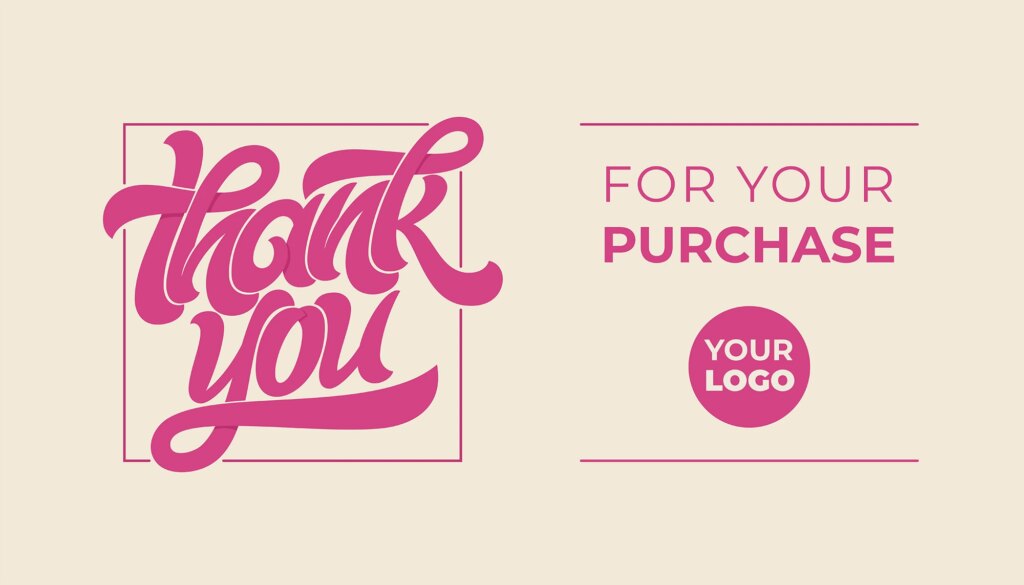
How to Get Amazon Reviews – The 7 Easiest Ways

Table of Contents
- No Reviews? No Deal.
- A Note on Fake Positive Reviews
- A Note on Fake Negative Reviews
- Why are Amazon Reviews Important?
- How to Get (Legitimate) Amazon Reviews
- 1. Be Honest & Provide an Excellent Customer Service
- 2. Send Follow-Up Emails
- 3. Amazon Vine Program - Seller Central
- 4. Physical Product Inserts
- 5. Actively Engage with Customers
- 6. Optimize, Rank, Get in Front of More Eyes
- BONUS TIP: Think Outside the Box
- Frequently Asked Questions
How to Get Reviews on Amazon
What do consumers think about your Amazon product? What are the best ways to get Amazon reviews? If you cannot answer this question, your business cannot move forward. Today we’re talking about the F word.
Feedback.
Without customer feedback (in the form of Amazon reviews) you will not:
- Understand the perceived value of your product
- Know about critical defects that will directly affect sales
- Become a brand with credibility in the marketplace
- Feel encouraged about your product (this point seems trivial, but for many new sellers, this is one of the most important mental factors for motivation)
97% of shoppers say Amazon product reviews directly influence their buying decisions. There are certain aspects of selling on Amazon you can bypass or put off, reviews are not one of them.
No Reviews? No Deal.
Shoppers browsing Amazon look at three primary things:
- Price
- Prime Shipping Badge
- Number of Reviews
When considering two similar products with similar ratings, customers are more likely to purchase the product with more reviews.
In the mind of a shopper,
more reviews = safer purchase.
“If so many people are buying this product, it can’t be that bad.” There is definitely a popularity bias here.
Do more reviews always mean a better product? No…
Do more reviews always mean more trust? Usually.
COVID-19
An interesting thing to note is the current state of the world. Due to the Coronavirus outbreak, Amazon has been put under more pressure than it has ever seen. Because of this, many of peoples’ favorite brands have run out of stock or become subject to lengthy shipping delays. This is a unique example of when customers may forego stringent review research in favor of faster shipping times. This impacts FBM sellers, not just FBA ones.
A Note on Fake Positive Reviews

The tactics we will be discussing in this article will be focusing on white hat strategies only – legal, genuine, and honest ways to promote positive feedback for your brand. Utilizing fake product reviews in any form is considered black hat – underhanded and dishonest tactics to trick shoppers into buying.
Stay away from faking your product reviews.
Not only is this extremely frowned upon in the ecommerce world, but should shoppers discover you are faking reviews, your credibility goes out the window… and into the incinerator.
Dishonesty creates angry customers. Angry customers stop buying your product (then leave very real negative reviews). Don’t make your customers feel cheated. Be transparent and set their expectations up front. Shoppers are more willing to forgive a seller who takes steps to correct a problem exposed by an honest review than to forgive a seller for lying to them at the checkout line.
A Note on Fake Negative Reviews
Your listing may be attacked by malicious competitors who employ fake negative reviews. Many shoppers will not know the difference between real and fake reviews. Should your listing be bombarded with fake negative reviews, you are guaranteed to see your sales drop. When sales drop, your product stops ranking. When your product stops ranking, sales become harder and harder to net, and so the cycle continues its spiral.
Read more about how fake reviews can affect your listing and what to do about them to arm yourself with the knowledge to succeed.
Buyers are willing to spend 31% more when a business has positive reviews.
Why are Amazon Reviews Important?
- Insights into customer demand and interest
- Winning the popularity bias
- More reviews help you to rank higher and win the buy box
- Great marketing tool (don’t be afraid to brag about all those 5-stars!)
- Increased trust, reputation, and therefor conversion rates
“Ok. Ok. Point taken crazy blog man, reviews are important, I get it.”
Great! You’re most likely here to learn how to get Amazon reviews. Direct seller feedback is one of the single best ways to build credibility for your brand.
We won’t keep you waiting any longer – let’s get into the good stuff.
How to Get (Legitimate) Amazon Reviews

1. Be Honest & Provide an Excellent Customer Service
This may sound more like common sense than a “strategy” to some of you. However…
…common sense is one of the most “out of stock items” in the Amazon world.
Be honest about what you’re selling and make sure your description clearly communicates what a customer will receive if they purchase your product.
Most negative reviews hinge on mismanaged expectations.
Set the bar front and center for shoppers and paint it neon green.
Note: avoid misleading or coercive language. Amazon is more watchful than ever for possibly “manipulative language”. Even mentioning things such as “please support this family-owned business” or “we manufacturer in the USA, if you think this is worth 5-starts, rate us!” can be seen as manipulative in the eyes of Amazon.
2. Send Follow-Up Emails
Customers are great. Happy customers are better.
Don’t rely on a generic, post-order email. Many people ignore these – there is nothing human about them. Utilize personal email follow ups for every buyer who purchases your Amazon product.
The majority of reviews are generated from follow-up email prompts.
You’re probably thinking, “Yeah that sounds great, but no one has time to sit down and personally hand-pen emails to each and every customer.” At Helium 10 we’re a little offbeat (and proud of it)… but we’re not insane. We believe in making customer service easier for sellers.

With our Follow-Up tool you can finally nail the balancing act of personalization and automation.
- Build custom email templates or choose from the ones we supply you
- View completed orders and set email automation as you see fit
- Personally engage with every single customer who buys from you
Follow-up emails are truly a great place to make yourself stand out from the rest using custom templates. The goal here is to reach out to your potential Amazon reviewers while the sale/your product is still fresh in their minds.

Don’t forget to also take advantage of Amazon’s built in “request a review” feature as well. This is among the faster ways of reminding sellers to leave feedback.
Get creative, show you care, and elevate your reputation.
3. Amazon Vine Program – Seller Central
The Amazon Vine Program collects only the most prolific and trusted Amazon reviewers, then sends them free products to review from vendors who are enrolled in the program.
The Amazon Vine “Voices” (trusted Amazon reviewers) are chosen on an invite-only basis and picked based on their past reviews’ overall helpfulness and relevance to the product enrolled in Vine. All reviewers are authentic, unpaid, and deal through Amazon, not vendors.
You can access Vine through the “advertising” section in Amazon Seller Central. There is no fee to enroll (this may soon change) and you may only submit products with less than 30 reviews.
An interesting thing to note: Vine reviewers tend to be slightly more critical than regular reviewers and incentivized reviewers.This doesn’t mean they don’t give out five star reviews, it just means they’re paying attention more than your everyday Amazon reviewer.
This graph from ReviewMeta breaks it down:
Although Vine reviewers are more frugal with their higher ratings, they do trend towards giving more 3 and 4 star ratings.
Don’t forget to leverage the tools already included within your Amazon Seller Central portal, such as Vine. They’re there for a reason.
What’s the difference between Vine and Amazon Early Reviewer Program?
Amazon Early Reviewer Program
- Enrollment cost: $60
- Product price: Product is purchased at full price
- Max review cap: 5
Vine
- Enrollment cost: Free
- Product price: Product is given to reviewer for free
- Max review cap: 30
4. Physical Product Inserts
It’s popular these days to proudly proclaim from the rooftops, “PRINT IS DEAD”… we are happy to report that is far from the truth.

Physical product inserts are a personal touch that ship with your product and end up in your buyer’s hands (even if it’s on the way to the recycle bin – you have their eyes, don’t waste the opportunity). This is often a simple note card encouraging customers to enjoy the product and leave a review. Be careful here, you can remind them to leave a review, but you cannot ask them to leave a positive review, even if there is no incentive involved.
Customer service via physical inserts are a great way to:
- Promote warranties (which in turn may give you more emails to add to your follow-up list)
- Tell your brand story
- Promote your social media channels (Remind the buyer to reach out on Facebook for guides, manuals, and additional customer service support)
Remember to stay neutral and authentic. Customers have grown callous to hearing the hard sell at every stage of the buying process.
Be a genuine seller, not a faceless infomercial.
5. Actively Engage with Customers
Customer service is a lost art – especially in the online marketplace.
Too many sellers have grown used to anonymity and too many sellers have grown used to the sub-par customer service that comes with it.

Use feedback and engagement to go above and beyond the majority of lazy Amazon sellers and open the door for product reviews where there would otherwise be none.
- Helping a customer with technical difficulties
- Being active and available on social media platforms such as Facebook
- Answering a customer’s question before they make the purchase
- Returns or exchanges in a timely manner
- Any time you turn an unhappy customer into a happy
All the scenarios above are not customer issues, but customer opportunities.
7 out of 10 customers are likely to change their opinions about a brand after the brand replied to a review.
The more you engage with customers on a personal level to help with their questions, the more likely they are to leave positive feedback.
6. Optimize, Rank, Get in Front of More Eyes
Is my listing optimized to be the best it possibly can? How do I find out if a product will be popular enough to sell well and therefore garner reviews?
Couldn’t have asked those questions better ourselves! Read below to find out more about two of Helium 10’s tools for Amazon sellers!
For those new to Amazon selling:
Cerebro: Type in an ASIN, find high-traffic keywords. Do your homework before you choose your product. The easier you can achieve page one rankings for your product, the easier it will be for you to get reviews.
For existing Amazon sellers:
Scribbles: Type in your target keywords, find out if your listing is doing them justice. Just because you’ve launched doesn’t mean it’s too late to retool your product page and rank higher. Scribbles not only allows you to live track your keyword usage within your listing, but gives you the opportunity to use the best keywords for your product in the front end and back end of your Amazon listing.
To learn more about the importance of ranking, visit our Amazon SEO guide.
BONUS TIP: Think Outside the Box
- Local meetups and promotions
- Proactive networking on social media (LinkedIn, Facebook, etc.)
- Utilizing outside review platforms like Yelp
Selling on Amazon FBA is more competitive now than ever before. The same goes for getting valuable seller feedback. We hope you can use the above strategies to maximize your chances for reviews, while staying white hat, and uncover important feedback. Remember, a customer will be more willing to give a seller feedback if their buying experience felt personal.
At the end of the day, reviews are just words. However, for all the numerical Amazon metrics we sellers stay up late stressing about, it is these words that affect our business most at the end of the day.
Frequently Asked Questions
Achieve More Results in Less Time
Accelerate the Growth of Your Business, Brand or Agency
Maximize your results and drive success faster with Helium 10’s full suite of Amazon and Walmart solutions.

